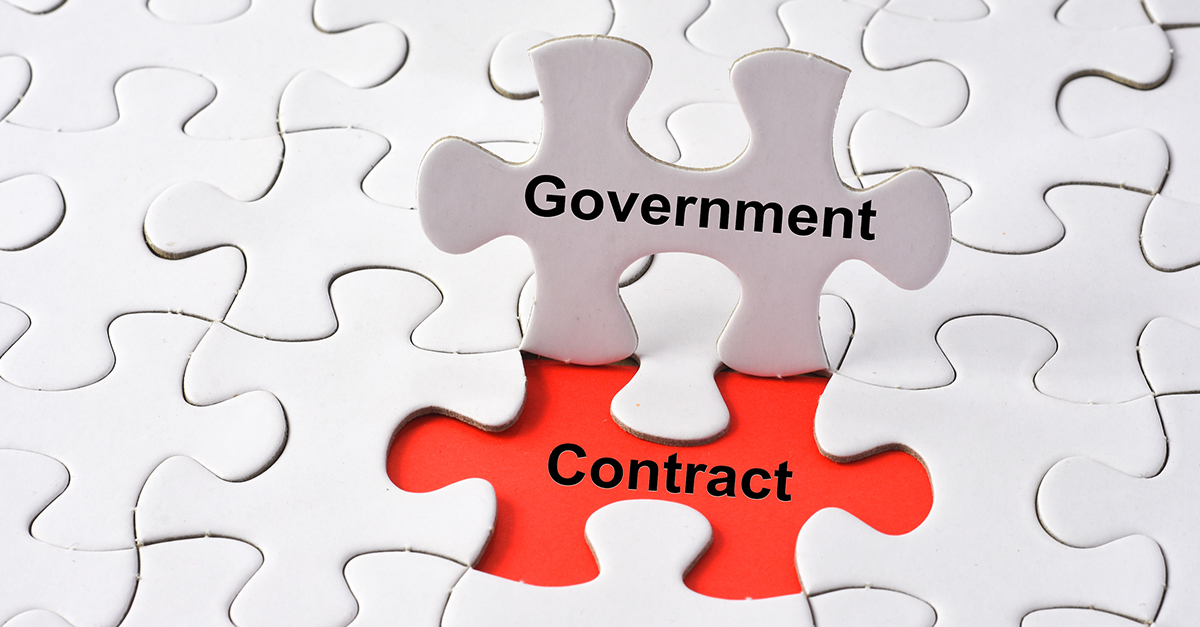Government contracts are often viewed as a daunting, red-tape-ridden mountain that is only accessible to the well-connected or those with substantial resources.
However, according to Dan Marsh, CEO and co-chair of Hinz Consulting, a veteran business strategist, the real barrier isn’t bureaucracy—it’s a lack of preparation and relationship-building.
Marsh recently dispelled the myths and revealed the practical steps any business—large or small—can take to enter the public sector arena with confidence and success.
No magic, just math
“Everyone thinks sales is an art,” Marsh said. “But it’s science—repeatable, measurable, and entirely based on process.” He challenged the notion that winning work, especially in government, comes down to charisma or price alone. Instead, Marsh laid out a structured path: understand the customer’s pain, develop a shared vision of the solution, establish value, and maintain control over the buying process.
This formula, he explained, is not only how successful salespeople consistently win—it’s also the key to thriving in the government space.
“If you’re trying to compete when the request for proposal (RFP) drops, you’ve already lost,” Marsh said. “Government contracting isn’t about reacting. It’s about showing up early, building relationships, and helping the client shape the solution before it’s written into the bid.”
It all starts with pain
For Marsh, the sales journey begins when a client recognizes a problem—what he calls “pain.” Only once they’ve identified that pain can a seller step in and offer a vision for resolution. This is where government sales often differ from those in the commercial sector.
“In commercial, we’re used to jumping in mid-stream. But in government, the opportunity to plan with your customer is massive,” Marsh said. “You get the chance to influence how the RFP is structured, and that’s where the competitive edge is born.”
He cited examples of reshaping procurement requirements in local and federal agencies by engaging early, offering education, and guiding clients through solutions they didn’t even know they needed.
Value, relationships, and control
With humor and candor, Marsh emphasized that real sales don’t happen through cold submissions. They happen because of value alignment and relationship control.
“You can’t sell if you don’t know what your customer values,” Marsh said. “If you’re struggling with that, it’s because you haven’t spent enough time asking questions.”
Once aligned on needs, Marsh advised, the seller’s job is to help the client navigate procurement in a way that favors the partnership. That’s where trust—built over months or even years—comes into play.
He likened poor timing in government bidding to showing up at someone’s door and asking to buy their house without ever having met them. “Why would they choose you?” he asked. “They already know Phil from the golf course.”
Get in early—or don’t bother
Marsh was blunt: If your team is responding to RFPs without prior engagement, you’re wasting your time.
“They invited you to bid because they need three quotes. They’re giving the job to Phil,” he quipped. “You have to influence before the RFP exists.”
To achieve this, Marsh urged businesses to view government sales as a long-term strategy rather than a quick win. He shared how his own firm has helped clients win millions in federal and local contracts by planning years in advance—sometimes identifying opportunities in 2025 or 2026 and initiating engagement now.
Government portals are your pipeline
Another key takeaway: The opportunities are out there, in plain sight.
“There’s a procurement portal for every state, county, and federal agency,” Marsh said. “They’re not hiding. They’re begging you to find them.”
While he admitted these platforms can be overwhelming, Marsh emphasized the importance of designating someone to manage the paperwork, registrations, and vendor setup. “You’re not locked out—you’re just lazy,” he joked.
For those who struggle to navigate the maze of data, Marsh’s firm offers proposal support, analysis, and pipeline-building services. “It looks complex, but we’ve done it a thousand times,” he said. “And the return on investment (ROI) can be staggering.”
Differentiation is key—but rare
One challenge Marsh addressed head-on was the difficulty of standing out in a low-bid, high-competition environment.
“When everyone’s green and everyone’s saying, ‘we deliver quality,’ what makes you different?” he asked.
He cited a smart move by one company that branded itself as a specialist in cleaning churches and schools—not because they were, but because that niche created a space with little competition.
“That’s genius,” Marsh said. “They carved out a space where there was no differentiation and made themselves the go-to.”
Still, he acknowledged that in most government work, relationships remain the strongest differentiator. “People buy from people they trust,” he said. “And in the government world, trust is earned by showing up long before they need you.”
Identify, engage, influence
Marsh summarized the government contracting journey in three simple phases: Identify, engage, and influence.
- Identify: Know who your target customers are—county, state, or federal—and get registered as a vendor.
- Engage: Start building relationships long before the RFP. Ask what they need, offer insights, and educate.
- Influence: Help shape the scope of work or requirements by sharing best practices and innovative solutions.
So, plan and, above all, be patient.
“This isn’t fishing with a grenade. It’s not reactive,” Marsh said. “It’s strategic, methodical, and worth every bit of effort.”



